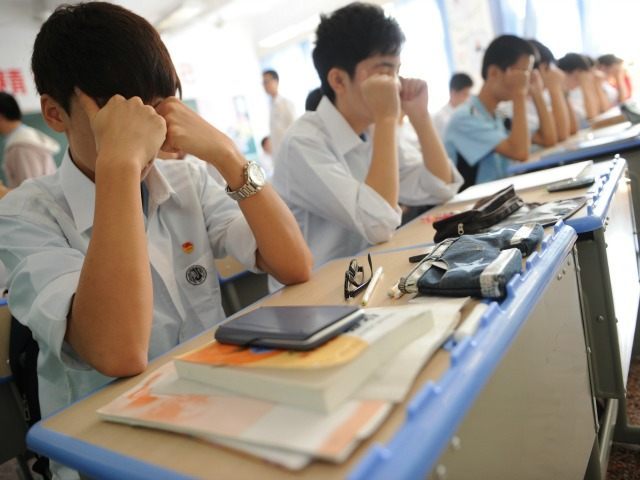The South China Morning Post begins its report on the crash of China’s education rankings in a rather anodyne fashion, but the buried lede is that China has been gaming the system for years by excluding the bulk of its population from previous studies.
In the latest Program for International Student Assessment report released on Tuesday, the performance of 15-year-old pupils in mainland China dropped across all three categories after Beijing, Guangdong and Jiangsu province were included in the survey carried out last year.
The country ranked 27th in reading, sixth in mathematics and 10th in science globally.
The mainland topped all categories in previous studies carried out in 2009 and 2012, when only Shanghai was surveyed. Some 540,000 students across 72 countries or cities were quizzed with a computer-based test during the latest version of the survey.
The report goes on to cite work from the Brookings Institution in America that suggest Shanghai has abnormally high per-capita income and a very pronounced focus on education, with Shanghai parents “known to invest heavily in their children’s education outside school.”
In other words, we have something of a Potemkin-village effect: a highly unusual environment inaccurately presented as the norm, skewing the results upward to create talking points about the general superiority of Chinese students and educators. The Chinese education system is also currently dealing with allegations that some students were given illicit assistance by staffers in order to qualify them for programs at U.S. colleges.
The overall question of how to improve the educational performance of students around the world by studying high-performing schools remains. If Shanghai performs exceptionally well compared to the rest of China, then why not study what Shanghai is doing, and emulate their system everywhere?
The problem is that isolating these success factors is a tricky business. It has long been assumed that the long hours put in by Chinese students was a key to their success — the Australian Financial Review describes their schedules as grueling 77-hour weeks that would “make a corporate lawyer or investment banker blush,” with children still working furiously on their daily homework assignments as the midnight hour approaches.
However, the South China Morning Post notes that other high-performing systems, such as Finland, require less than 40 hours of combined in-school and at-home work from their students. Perhaps part of the key is the SCMP’s observation that Shanghai parents invest a good deal of money in “education outside school,” which could provide both a means of keeping the minds of students engaged and active with varied pursuits and also serve as an indication of parental involvement in education.
Studies around the world, and across decades, have found parental involvement is a vital component of academic success. Unfortunately, that will be a difficult factor to enhance for children who live in environments where parental influence is limited or absent.

COMMENTS
Please let us know if you're having issues with commenting.